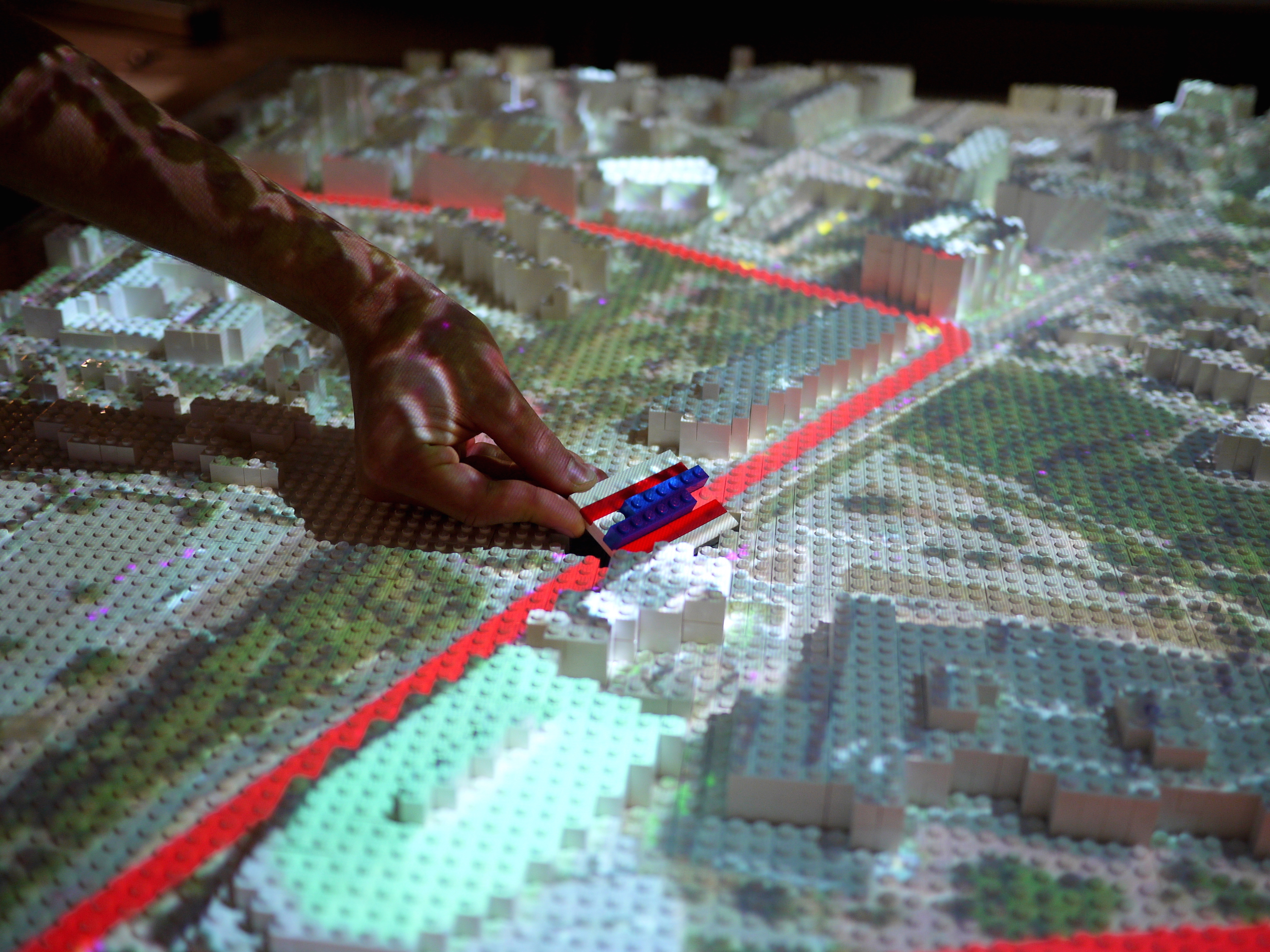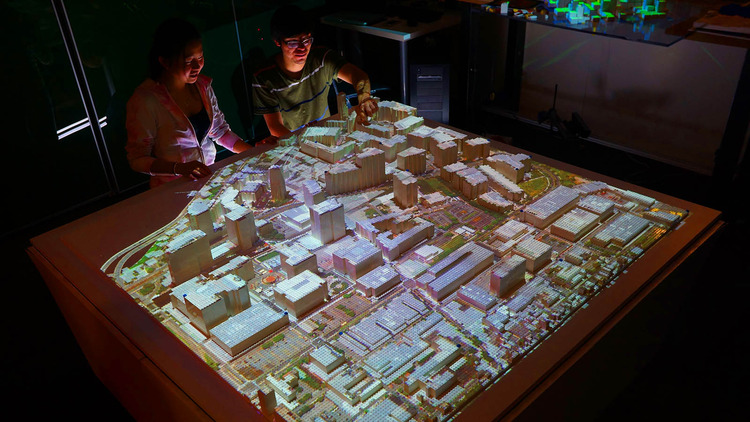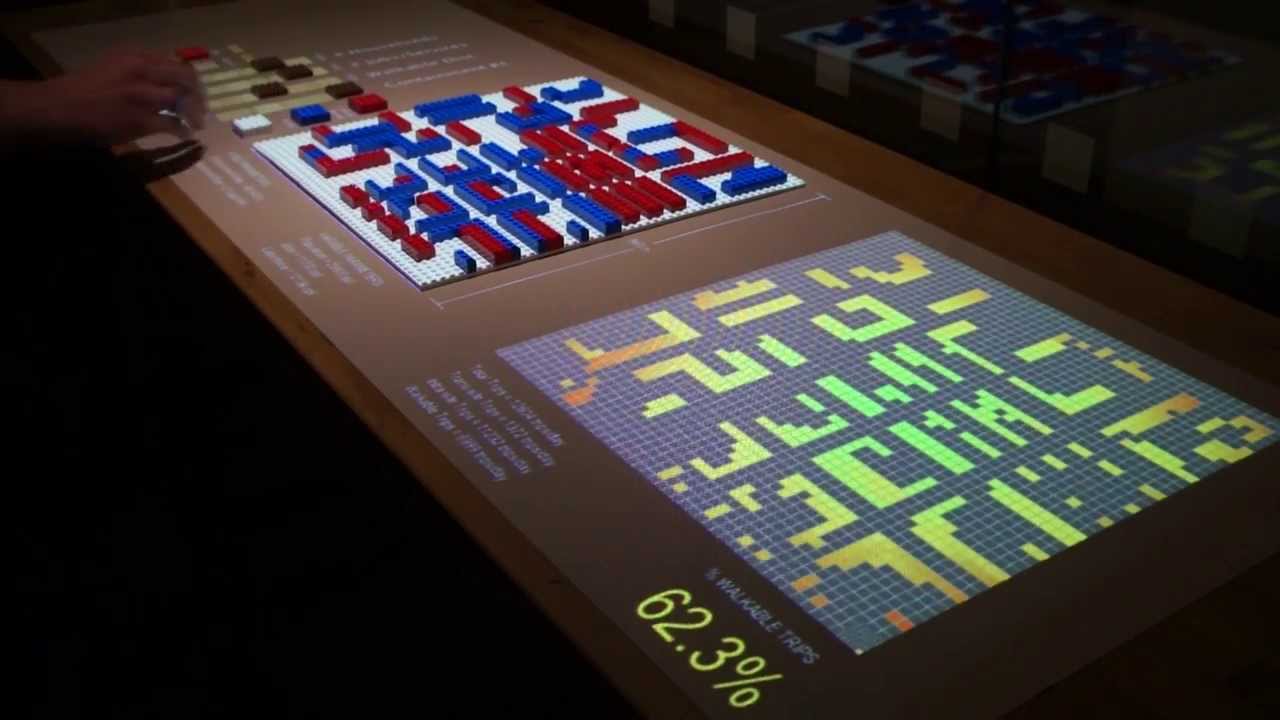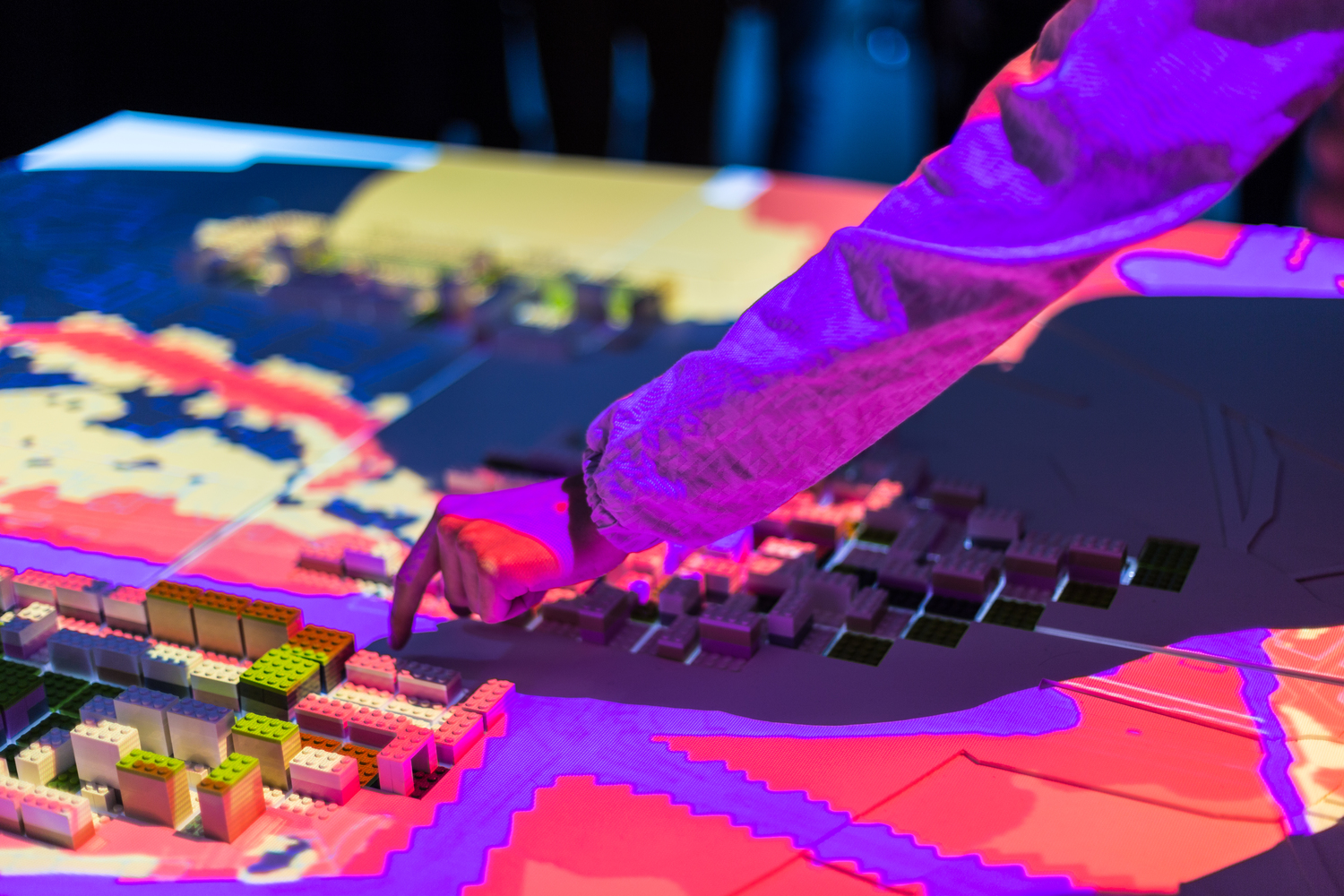Games for Cities
CityScope (2014)
Boston [US]
Developed by:
Digital 3D augmented-reality game for urban planning focused on rapid prototyping and facilitating non-expert stakeholder collaboration.

Urban development projects typically operate under pressing deadlines yet involve a high level of complexity and a wide range of stakeholders. This often leads to a difficult-to-resolve tension between proactive decisiveness and broad-based participation of the various players involved. CityScope, an initiative of MIT Media Lab’s Changing Places Group, addresses precisely this tension. The game utilizes 3D augmented-reality planning technologies to achieve two primary goals: rapidly prototyping real urban planning scenarios and facilitating non-expert stakeholder collaboration within complex urban contexts.
CityScope is a planning tool that combines innovative technologies with the age-old Lego brick concept. This combination delivers a tangible, interactive rapid prototyping platform that offers real-time feedback. Typically, a physical Lego-brick style construction of the target development area is constructed on a table. By optically tagging the bricks, CityScope is able to comprehend hands-on user-made changes that are visually represented through color-coded projections on the physical simulation. The tool is extremely versatile and can be customised to address any number of issues, including walkability, access to jobs, housing or open space.
Employed in workshops across the globe — from downtown Boston, USA to China, Australia, Saudi Arabia and Germany — CityScope has proven to be a highly versatile tool, able to address a wide range of urban issues. Its game-based playful environment gives valuable new life to previously isolated urban planning processes. This makes it possible for larger groups of non-expert stakeholders to better understand dynamic planning processes in real-time, as well as explore and experiment with alternative scenarios.


